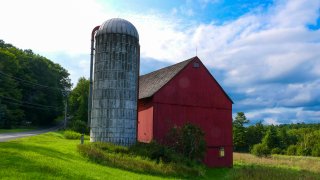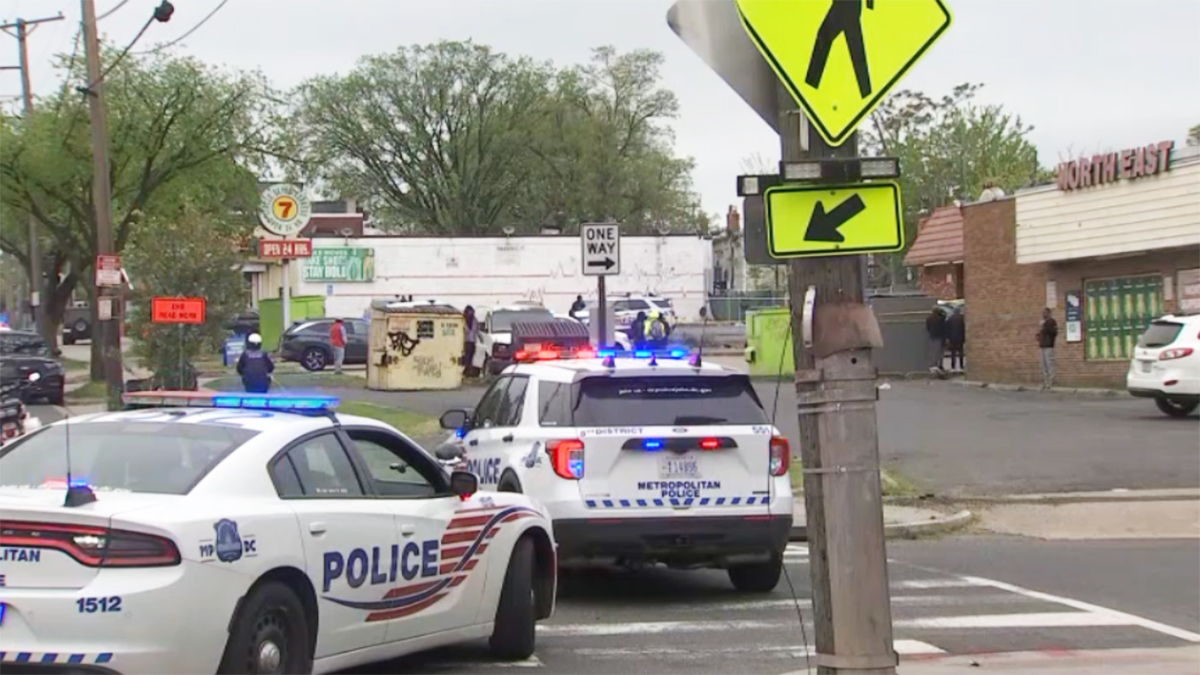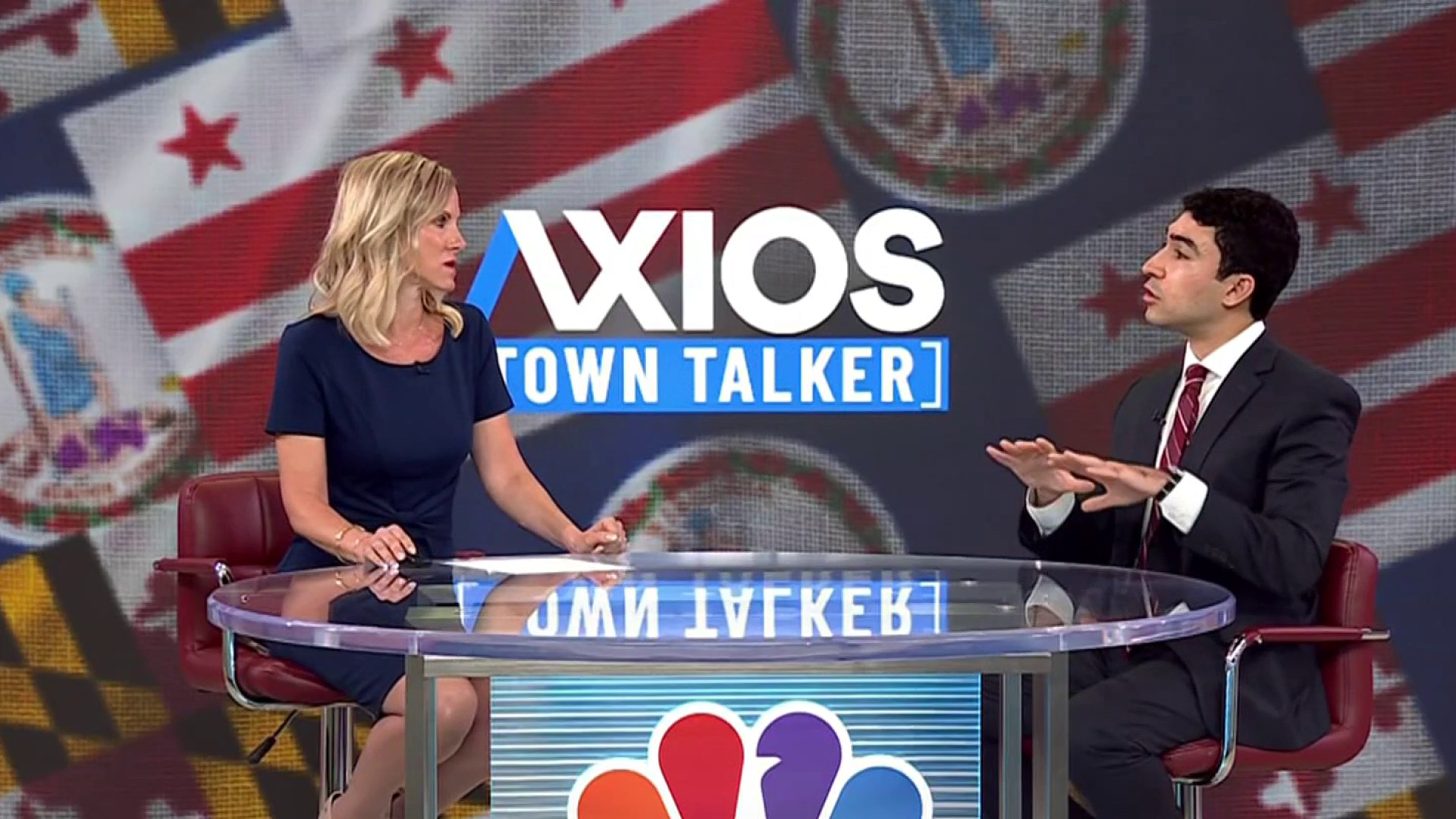
By mid-March, Hunter Ridge Stables owner Maria Matthews instituted 1½-hour time slots for individual boarders so that only one rider would be on-site at any given time.
But after Gov. Larry Hogan’s issued a stay-at-home order effective March 30, Matthews closed her barn at Bridgefield Farm in Davidsonville to all except her staff, veterinarians and farriers.
“I have to keep the people who are working here safe,” Matthews said. “If they get sick, we have real problems.”
Like all non-essential businesses, most Anne Arundel County barns and stables have shut their doors to the public. In many cases, even the owners of the individual horses boarded on the property are banned from the premises.
We're making it easier for you to find stories that matter with our new newsletter — The 4Front. Sign up here and get news that is important for you to your inbox.
Efforts to slow the spread of the coronavirus pandemic have fallen hard on Maryland’s horse industry, which pumped $1.3 billion to the state’s economy in 2018 and created 21,000 jobs, according to the American Horse Council. Less than half of that — $500 million — came from horse racing, where cancellations and postponements have affected everything from the Preakness Stakes at Pimlico to daily races at Laurel Park.
With 4,500 horses and 950 barns, Anne Arundel County ranks seventh in a state with the most horses per square mile in all of America. And that business has ground to a stop.
“I’m 70 years old and I’ve been in the horse business my whole life, and never been through anything like this,” said Ross Peddicord, executive director of the Maryland Horse Industry Board.
Local
Washington, D.C., Maryland and Virginia local news, events and information
In barns big or small, it’s not always simple to accomplish social distancing. Shared spaces, such as common rooms and paddock gates, are somewhat hard to avoid, which is why Deana Tice, owner of En-tice-ment Stables at Obligation Farm in Harwood, emphasizes cleaning regularly.
Illness still arises. One horse colicked, a gastrointestinal condition that can be fatal if not handled immediately. The horse recovered quickly, but caring for it meant Tice and her vet were in close quarters.
Still, Tice said she feels fortunate she can spread her four to five workers at any time over four farms and 11 fields. She provides workers with their own equipment and PPE and limits exercising the horses to flatwork to avoid an accident.
“We do not want to have to send any of our staff members to get medical care at this time because medical care is stressed out,” Tice said. “We don’t want to have our staff members exposed to (the virus).”
NO PLACE TO GO
Lessons are a major source of income for barns, as well as camps and clinics. Because of the shutdown, it’s an income that’s run dry.
The Maryland Horse Council held a town hall recently in which it encouraged barns to apply for as many business relief programs as possible, such as the Coronavirus Aid, Relief and Economic Security Act, as many barn owners, including Tice, have. The Horse Industry Board is advising the Maryland Fund for Horses to open from servicing individuals only to businesses but knows the small organization will get overwhelmed quickly.
Tice estimates 100 lessons ran each week at En-tice-ment; without it, her income’s slashed in half.
She’s not the only one worried. Dun-Pikin Farm in Pasadena offered lessons, camps and “pony parties” that accounted for a bulk of its income. In the first weeks after business shut down, the situation appeared fairly dire to owners Rick and Cindy Holt.
“All of a sudden we couldn’t do anything but keep the horses alive,” Rick Holt said.
Initially, Holt hesitated to accept help from followers of the barn on Facebook. Taking money without service in exchange felt too much like charity to him, and there are others that need help more.
So he got a little creative. The Holts launched the “Sponsor a Lesson Horse” initiative, in which people could donate $30 a month to “sponsor” one of Dun-Pikin Farm’s 10 lesson horses. So far, more than $1,000 has been raised. It won’t replace his business lost, but Holt said it will help.
“They’re concerned and we’re just very appreciate of the fact they want to do it,” Holt said. “It’s been a good thing. The first day we did that, I was sitting there looking through emails with tears in my eyes.”
While feed can be lessened now that grass is growing in and horses are exercising less without riding, there are other costly expenses. Along with veterinary and farrier fees, there’s also monthly insurance payments on the properties to deal with, as well as payroll for workers.
There are instances of barns surviving after closing for three months because of highly infectious horse diseases. That, however, won’t be the case for all. There is also no current expiration date on non-essential business shutdown.
Peddicord, the Horse Industry Board director at the Maryland Department of Agriculture, is holding regular conversations with Maryland horse rescues to prepare them for a sudden wave if stay-at-home continues much longer.
“We just don’t want to think about it,” Holt said. “There’s just no place for these horses to go. You won’t be able to sell them. You wouldn’t be able to give them away.”
Tracey Bienemann rises around 5:30 a.m. daily to feed, muck stalls and exercise 10 to 16 horses a day that resides on her Lothian property, Tracey Bienemann Eventing.
It’s a blessing most owners don’t have. As head trainer as well as owner, Bienemann can fulfill the lesson portion of her clients’ boarding package, which is interchangeable with training rides.
Bienemann was “terrified” when she sent the email to her clients that she’d be closing the doors. There are barns, she said, that are not following the shutdown protocol, and Bienemann worried boarders would flee there.
But they didn’t.
“I’m so lucky,” Bienemann said, “and all the clients have been understanding. Some have upped their training a bit, some have lowered.”
‘LIKE FAMILY TO THEM’
Cheryl Lancaster, a retiree living in Eastport, had just returned from Aiken, South Carolina last month with a blue ribbon her mare earned eventing. Just as Lancaster had stepped onto a course to make real progress in the competitive riding world, she’d been blown off course by the lockdown.
While she knows her horse is taken care of by Bienemann, Lancaster tries her best to keep in shape with yoga and frequents walks with fellow boarder and retiree, Carrie Collins.
But there’s nothing that can prepare her for riding, except riding.
“My horse is going to be ready for Rolex when this ends,” Lancaster said, “and I’m going to be a beginner rider again.”
It’s not just losing the skills that afflict boarders.
“These horses are like family to them,” Matthews said.
Lancaster grew up riding but had to withstand long periods without it, as other areas of her life became a priority. Ever since she’d been able to buy her mare nearly seven years ago, she’d been able to fill five to six days a week with the thing she’d loved most.
“That was our whole lives,” said Collins, who hasn’t seen her “sweet lovely guy” in two weeks. “That was the way we spent our days. It’s been rough. Nobody’s complaining too much — we’re not sick, we’re not in the hospital, we’re not dying.”
Some owners do their best to keep their boarders “in touch,” so to speak, with their horses as possible with email updates, photos and videos. At Hunter Ridge, Matthews holds nightly Facebook Live sessions where she takes viewers through the barn.
Everyone knows it isn’t the same.
County Executive Steuart Pittman, a lifelong horseman who created the Retired Racehorse Project, has less time to see his own horses at his farm in Davidsonville because of his job. Given his long background with horses, he understands the emotional side of it.
“Then again,” Pittman said, “we also can’t see our parents and our grandparents in nursing homes. These are difficult times. We have to comply and do the right thing.”



